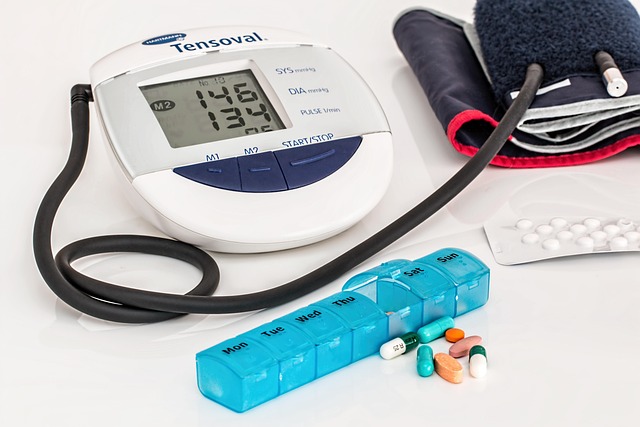What to Know About a Career as a Hospital Pharmacist in 2025
Hospital pharmacists play a key role in the evolving healthcare system, offering clinical support, managing medication safety, and collaborating with medical teams. As 2025 approaches, this profession continues to adapt with new technologies, specialization pathways, and updated educational routes. This guide outlines the aspects future professionals often consider when exploring this career path, from training and licensing to potential areas of growth and how roles may shift with changing healthcare needs.

Hospital Pharmacist Requirements in 2025
The pathway to becoming a hospital pharmacist in 2025 will continue to be rigorous, with several essential requirements. At minimum, candidates must complete a Doctor of Pharmacy (PharmD) degree from an accredited pharmacy school, which typically takes four years after prerequisite undergraduate coursework. All practicing pharmacists must also pass the North American Pharmacist Licensure Examination (NAPLEX) and state-specific law exams.
However, by 2025, hospital settings will increasingly prefer additional qualifications. Board certification through the Board of Pharmacy Specialties (BPS) in areas like pharmacotherapy, critical care, or oncology pharmacy will become nearly standard expectations for specialized positions. Many hospitals will also require completion of at least a PGY-1 (Post-Graduate Year 1) pharmacy residency program, with specialized positions demanding PGY-2 residencies in specific practice areas.
Technology proficiency will become a non-negotiable requirement, as hospital pharmacists must navigate electronic health records, automated dispensing systems, and clinical decision support tools. Additionally, soft skills including interprofessional communication, patient education abilities, and leadership capabilities will be emphasized in hiring decisions.
Pharmacist Salary 2025 Projections
The financial outlook for hospital pharmacists in 2025 appears promising, with salaries expected to increase due to continued demand for pharmacy expertise in complex healthcare settings. Based on market analyses and historical trends, hospital pharmacist salaries are projected to range from $135,000 to $155,000 annually for staff positions, with clinical specialists and those with advanced certifications commanding $150,000 to $175,000.
Geographic location will continue to significantly impact earning potential. Urban centers and areas with higher costs of living typically offer higher compensation, sometimes exceeding $180,000 for experienced pharmacists, while rural hospitals may offer packages starting around $125,000 but often include additional incentives like loan forgiveness programs.
Pharmacists in leadership positions such as clinical coordinators or pharmacy directors can expect salaries ranging from $160,000 to $200,000+, depending on the facility size and responsibilities.
Prices, rates, or cost estimates mentioned in this article are based on the latest available information but may change over time. Independent research is advised before making financial decisions.
Clinical Pharmacy Career Path Advancement
The clinical pharmacy career path in 2025 will offer numerous advancement opportunities beyond traditional dispensing roles. Hospital pharmacists typically begin as staff pharmacists, focusing on medication distribution, order verification, and basic clinical services. With experience and additional training, progression to clinical pharmacy specialist roles becomes possible.
Clinical specialists focus on specific therapeutic areas like infectious diseases, oncology, critical care, or transplant medicine. This specialization requires deep expertise and often board certification, allowing pharmacists to make complex medication recommendations and manage drug therapy as part of interdisciplinary teams.
Leadership tracks will remain another viable progression path. Clinical coordinators oversee specific service lines, while pharmacy managers and directors handle departmental operations, budgeting, and strategic planning. By 2025, emerging roles in pharmacy informatics, medication safety, and transitions of care will create additional advancement pathways.
Research-oriented hospital pharmacists may pursue positions combining clinical practice with investigational work, particularly at academic medical centers. Additionally, teaching opportunities through affiliations with pharmacy schools will allow experienced practitioners to contribute to the education of future pharmacists.
Pharmacy Residency Programs Importance
By 2025, pharmacy residency programs will be virtually essential for those seeking hospital pharmacy positions, especially in competitive markets and academic medical centers. PGY-1 residencies provide broad training across multiple pharmacy practice areas, while PGY-2 programs offer specialized training in areas like emergency medicine, psychiatry, pediatrics, or cardiology.
The application process for these coveted positions will remain competitive. Successful candidates typically demonstrate strong academic performance, research experience, leadership activities, and clinical rotations in relevant practice areas. The Pharmacy Online Residency Centralized Application Service (PhORCAS) will continue streamlining the application process, with matching results typically announced in March each year.
Residency program quality will vary significantly, with factors like preceptor experience, patient population diversity, research opportunities, and staffing requirements affecting the training experience. Accreditation by the American Society of Health-System Pharmacists (ASHP) will remain the gold standard for program quality assurance.
Benefits of completing residency training will extend beyond improved job prospects. Residents develop advanced clinical skills, critical thinking abilities, and professional networks that accelerate career advancement. Many programs also offer teaching certificates, research training, and leadership development opportunities that prepare graduates for specialized clinical or administrative roles.
Technology and Innovation in Hospital Pharmacy
Hospital pharmacy practice in 2025 will be heavily influenced by technological advancements. Artificial intelligence and machine learning will support pharmacists in medication monitoring, adverse event prediction, and dosing optimization. Automation through centralized robotics and decentralized dispensing units will continue reshaping medication distribution workflows.
Telepharmacy services will expand, allowing remote order verification and clinical consultations, particularly benefiting rural facilities. Pharmacogenomic testing will become more routine, enabling pharmacists to recommend personalized medication regimens based on patients’ genetic profiles.
Digital health platforms will facilitate remote patient monitoring and medication adherence tracking, extending the pharmacist’s reach beyond hospital walls. As these technologies proliferate, hospital pharmacists will need continuous learning and adaptation skills to maintain their essential role in medication management within increasingly complex healthcare systems.
Conclusion
A career as a hospital pharmacist in 2025 offers promising prospects with competitive salaries, diverse advancement pathways, and expanding clinical responsibilities. Success will depend on obtaining appropriate education, pursuing residency training, developing specialized expertise, and embracing technological innovations. While requirements may be increasingly rigorous, those who prepare accordingly will find rewarding opportunities to improve medication safety and patient outcomes in hospital settings across the country.
This article is for informational purposes only and should not be considered medical advice. Please consult a qualified healthcare professional for personalized guidance and treatment.




